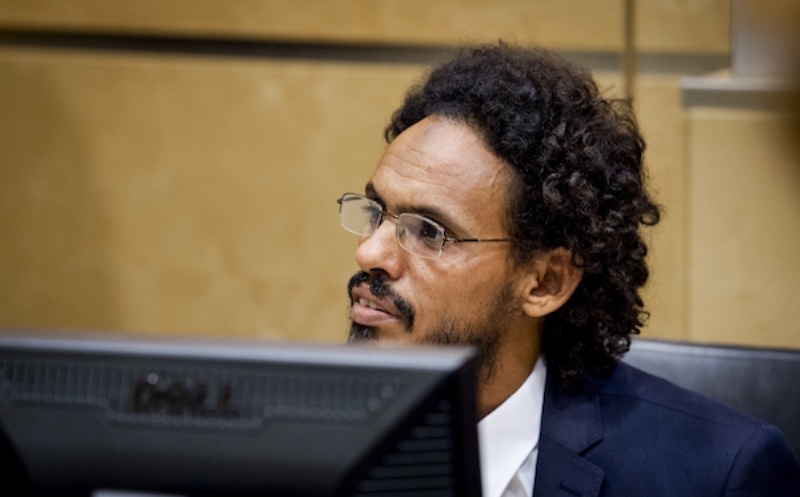Lahaye – Radical Islamist Ahmad al-Faqi al-Mahdi admitted before the International Criminal Court (ICC) that he ordered and participated in the destruction of historic monuments and buildings in Timbuktu. The monuments were on the World Heritage list.
“It is with deep regret and great pain that I had to enter a guilty plea,” he told the court. “All the charges brought against me were accurate and correct. I am really sorry, I am really remorseful and I regret all the damage that my actions have caused.”
Mahdi’s trial is the first of its kinds for several reasons. First of all, Mahdi is the first suspect to face ICC with charges of destructing heritage, the first radical Malian to stand before international court, and the first to be accused for crimes during the struggle in Mali.
After the indictment, Mahdi addressed the Malian people: “I would like to seek the pardon of all the people of Timbuktu.”
“This was the first and last wrongful act I will ever commit,” Mahdi added.
Mahdi said he would accept the will of the court “with pain and with a broken heart”, but said he was “pinning my hope on the fact that the punishment meted out to me will be sufficient for the people of Timbuktu and Mali to offer forgiveness, for mankind to offer forgiveness.
In this unprecedented trial, Mahdi faces charges of “intentionally directing attacks against historic monuments” and “buildings dedicated to religion” specifically nine mausoleums and one mosque in Timbuktu, the mud-walled Sidi Yahya mosque, dating from the 15th century.
Timbuktu was formed by the Tuareg Tribes in the fifth century. The city flourished with trade and became an Islamic cultural center.
Mahdi became the head of the “Hisbah”, or morality police, ordered and participated in the attacks on the monuments.
ICC Prosecutor Fatou Bensouda said that the destroyed buildings of immeasurable value, notably the mausoleums of Muslim saints, were a major part of the historic heritage of the ancient city of Timbuktu.
“They were a major part of the historic heritage of this ancient city. They were also more generally a part of the heritage of Mali, of Africa and of the world. All, except one, were inscribed on the World Heritage List.”
“Timbuktu, a city that was disfigured so profoundly that its people were wounded to the depths of their soul, forever marking that painful and dark chapter in the history of the city,” the persecutor continued.
Bensouda said that whoever destroys “the roots of an entire people, which irremediably affects its social attitudes, practices and structures” should be held accountable.
Mahdi is expected to be convicted and sentenced later this week.
Born around in 1975 in Agoune, 100 kilometers (60 miles) from Timbuktu, Mahdi was a member of the jihadist group Ansar Dine of Tuareg which joined forces with al-Qaeda in the Islamic Maghreb (AQIM). They captured northern Mali in 2012 and then Timbuktu for about ten months before international intervention in 2013.
Timbuktu was named the City of 333 Saints in reference to the number of Muslim sages buried there.
The prosecution said they would request imprisonment for Mahdi for a jail term between between nine to 11 years.
Mahdi asked for forgiveness and said he had been swept up in an “evil wave” by al-Qaeda and the Ansar Dine groups. He addressed Muslims of the world: “I would like to give a piece of advice to all Muslims in the world not to get involved in the same acts I got involved in because they are not going to lead to any good for humanity.”
